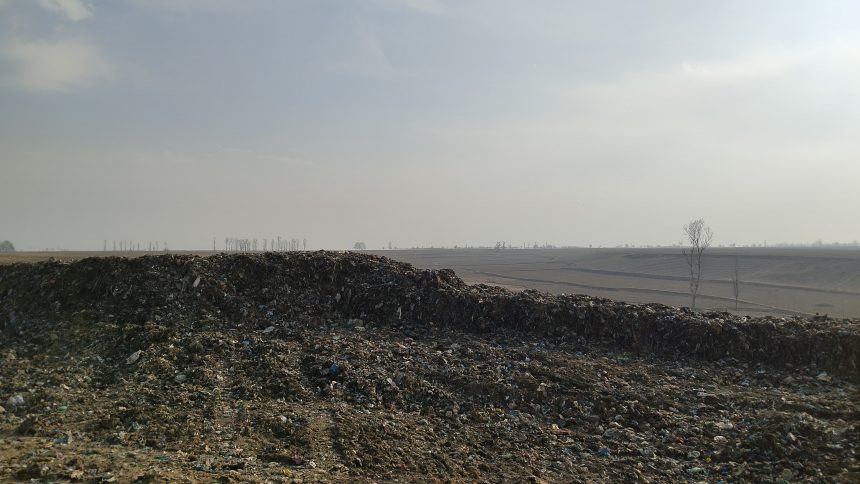Pulwama, Dec 12: Despite opposition from local farmers and the Jammu and Kashmir Pollution Control Committee (JKPCC), authorities in Pampore Tehsil of South Kashmir’s Pulwama district have begun constructing a solid waste treatment plant on Karewa land in the Galander area near the Srinagar-Jammu National Highway.
Local farmers have consistently raised concerns about the proposed facility, urging authorities to relocate it. They argue that dumping garbage on Karewa land poses a serious threat to the heritage crop of saffron, potentially increasing pollution, attracting rodents, and bringing canine species to the area.
Following a series of protests, the Pulwama wing of the JKPCC proposed a ₹3 crore fine against the Municipal Committee (MC) Pampore for dumping garbage on saffron land. JKPCC officials in Pulwama noted that the site is unsuitable for waste disposal and submitted a proposal to higher authorities for further assessment.
However, farmers reported that MC Pampore has begun constructing permanent structures at the site for solid waste processing.
“Work has been ongoing for the past few days,” local farmers told Rising Kashmir. They expressed disappointment, claiming that assurances from local authorities and the MLA Pampore about exploring relocation options had proven to be empty promises.
“This waste treatment facility will severely affect saffron farming in the area,” they lamented.
Divisional Officer of JKPCC Pulwama, Er. Bilal Ahmad Khan, said the committee plans to visit the site soon to assess developments. He also assured that a reminder would be sent to the concerned authorities.
Tehsildar and In-Charge of MC Pampore, Malik Asif Ahmad, highlighted the unavailability of suitable land for relocation.
“We are surrounded by saffron fields on all sides,” he said, adding that similar challenges would arise if the project were relocated. However, he assured that scientific methods would be employed to ensure waste treatment does not harm the environment.
“We will construct working sheds, install machines to process waste, and ensure the by-products are pollution-free and usable as fertilizers,” he said.
Ahmad also mentioned plans to erect a high fence around the site and dispose of accumulated legacy waste scientifically. He further added that by 2024-2025, an environmentally friendly solid waste treatment plant would be operational, posing no harm to the surroundings.








